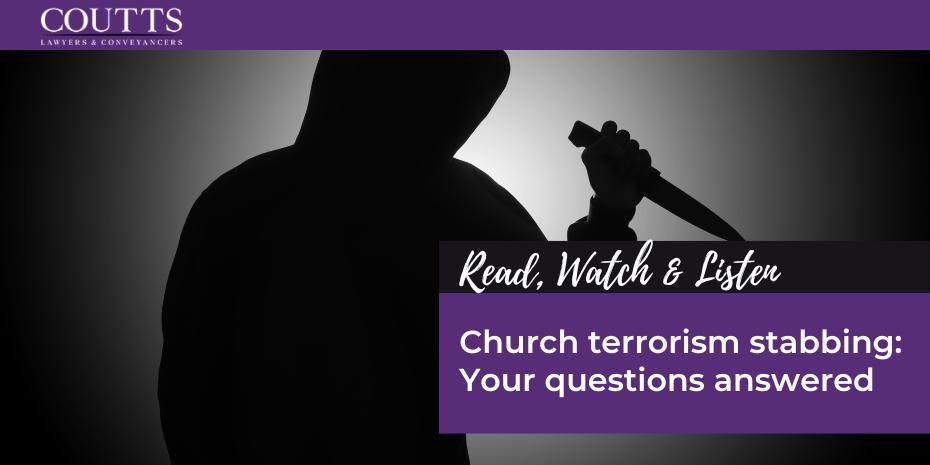KEY TAKE OUTS:
- The new No.1 hit TV show on Netflix based on a true story titled ‘Baby Reindeer’ has sparked conversations surrounding stalking and intimidation.
- “Maximum Penalties for Stalking and Intimidation: 5 Years Imprisonment, $5,500 Fine in New South Wales”
- Attempting to commit above offence is also a crime with the same penalties as if the stalking and/or intimidation was committed.
- ‘Baby Reindeer’ Martha would have been considered to have committed the offence of stalking and/ or intimidation through conducting,· Verbally threatening someone, Watching a person’s house, Sending a person repeated and/or unwanted emails, Repeatedly showing up to Donny’s workplace. In addition to physically assaulting his girlfriend who Donny has a domestic relationship with.
- This blog intends to provide insight as to what ‘Baby Reindeer’ may look like in the Australian context and what protections may be afforded to victims today should this occur in real life.
Maximum Penalties for Stalking and Intimidation: 5 Years Imprisonment, $5,500 Fine
‘Baby Reindeer’ has made waves after it skyrocketed the charts on Netflix. The TV show is an adaptation of comedian, writer and main character, Richard Gadd’s one-man play about his stalker ‘Martha’. Gadd’s character Donny meets Martha at a pub where he offers her a free Diet Coke. Following niceties, Martha becomes hyper fixated on Donny, shows up at his work every day and sends thousands of emails. Donny eventually decides to report the stalking after Martha physically attacks his girlfriend however, the Police state that they require the emails to be intimidating or sexual in nature. Following further investigation, the Police eventually charged Martha with multiple counts of stalking and intimidation.
Stalking in New South Wales
Stalking and/or intimidation is an offence in New South Wales under Section 13 of the Crimes (Domestic and Personal Violence) Act 2007.
In order to secure a conviction, the Prosecution must prove beyond reasonable doubt that:
- A person has stalked or intimidated another,
- With the intention of causing the person to fear physical or mental harm.
Attempting to commit the above offence is also a crime with the same penalties as if the stalking and/or intimidation was committed. Stalking and intimidation carries a maximum penalty of five years imprisonment and/or a $5,500 fine.
The New South Wales legislation has a broad definition of what behaviour may constitute stalking or intimidation which may include the following:
- Following a person,
- Watching or frequenting a person’s residence, work, business, or place of leisure,
- Molestation or harassment,
- Conduct that causes a reasonable apprehension of injury to the person or someone with a domestic relationship,
- Repeatedly trying to contact a person that causes fear for their safety, or
- Any conduct that causes a reasonable apprehension of violence or damage to property.
Therefore, in the context of ‘Baby Reindeer’ Martha would have been considered to have committed the offence of stalking and/ or intimidation through conducting the following actions:
- Verbally threatening someone,
- Watching a person’s house,
- Sending a person repeated and/or unwanted emails,
- Repeatedly showing up to Donny’s workplace.
- In addition to physically assaulting his girlfriend who Donny has a domestic relationship with.
Apprehended Domestic Violence Orders
In Australia, the Police have the power to issue an Apprehended Domestic Violence Order on a victim’s behalf which intends to protect them from the Accused.
Amongst other conditions available to the Police to impose, Condition 1 is a standard condition which will be included in all ADVO’s. It reads:
The Defendant must not do any of the following to the protected people or anyone that they have a domestic relationship with;-
- Assault or threaten,
- Stalk, harass or intimidate, or
- Deliberately or recklessly destroy or damage anything that belongs to the protected person.
It is important to note that an ADVO relates to those in a domestic relationship which is defined in the act in Section 5(1) as encompassing the following circumstances:
- Parties to a marriage or de facto relationship,
- An intimate personal relationship with the other person,
- A person who is living or has lived in the same household as the other person,
- A person who is living or has lived as a long-term resident in the same residential facility as the other person,
- A person who has or has had a relationship involving his or her dependence on the ongoing paid or unpaid care of the other,
- A person who is or has been a relative of the other, and
- In the case of an Aboriginal or Torres Strait Islander, is or has been part of the extended family or kin of the other in accordance with the Indigenous kinship system of culture.
Who can apply for an ADVO?
An application for an ADVO can be made by the person in need of protection, their guardian, or a Police officer.
It is most common for ADVO’s to be applied for by the Police however, it is important to note that having an ADVO does not necessarily mean there are associated criminal charges. An ADVO is a civil matter unless the conditions have been breached. Should you be found to have contravened an ADVO, you would be brought before a Magistrate and may face a $5,500 fine and/or five (5) years imprisonment if convicted.
What is the standard of proof for ADVO’s?
Legal representatives often talk about the differences in the standard of proof in criminal and civil cases. For criminal matters, all elements of the offence need to be proven beyond reasonable doubt. In civil matters, the standard of proof is on the balance of probabilities.
Therefore, ADVO’s will need to be proven on balance of probabilities which is a significantly lower threshold than criminal matters regardless of whether there are corresponding criminal charges that will follow the beyond reasonable doubt standard of proof. In instances where there are criminal charges that follow an ADVO, they will be treated separately in relation to the standard of proof despite being heard at the same time in front of a Magistrate.
Can an ADVO be varied?
The Defendant or the person in need of protection can make an application to the Court to vary the ADVO. In these instances, the Court will consider whether it is appropriate to make the variations based on all the circumstances of the case and the proportionality/ practicality of the conditions listed.
Can I accept an ADVO without admitting guilt?
Yes, you can accept the terms of the ADVO without admissions, particularly Condition 1 which simply states you will not commit a crime against the protected person on a ‘without admissions basis.’ This is because the ADVO is civil and not criminal in nature.
Apprehended Personal Violence Orders
Should you wish to be protected from someone that you do not have a domestic relationship with, for example, a co-worker, neighbour or stranger, the legislation still provides protection through the means of an APVO or Apprehended Personal Violence Order. An APVO can be made if the Court is satisfied on the balance of probabilities that a person has reasonable grounds to fear or in fact fears the following:-
- the commission by the other person of a personal violence offence against the person, or
- the engagement of the other person in conduct in which the other person:
- intimidates the person or a person with whom the person has a domestic relationship, or
- stalks the person,
being conduct that, in the opinion of the court, is sufficient to warrant the making of the order.
CONCLUSION
The Criminal Law team at Coutts are experts in dealing with the intricacies of stalk and/or intimidation charges as well as defending ADVO and APVOs. Should you require legal advice on any of the above, please do not hesitate to contact our office and arrange an appointment with one of our experienced solicitors.
ABOUT ISABEL STRAHAN:

Isabel joined the Coutts team in January 2022, as a Paralegal working with our Criminal & Family law teams, based in our Camden office. She has now transitioned into a Law Graduate role with hopes of being admitted into the legal profession as a Lawyer in 2024.
Isabel completed a Bachelor of Laws and Bachelor of Arts, Majoring in International Relations, and Minoring in Cultural Studies at the University of Wollongong. She is currently completing her Graduate Diploma of Legal Practice through the College of Law.
For further information please don’t hesitate to contact:
Isabel Strahan
Law Graduate
info@couttslegal.com.au
1300 268 887
Contact Coutts today.
This blog is merely general and non-specific information on the subject matter and is not and should not be considered or relied on as legal advice. Coutts is not responsible for any cost, expense, loss or liability whatsoever to this blog, including all or any reliance on this blog or use or application of this blog by you.



